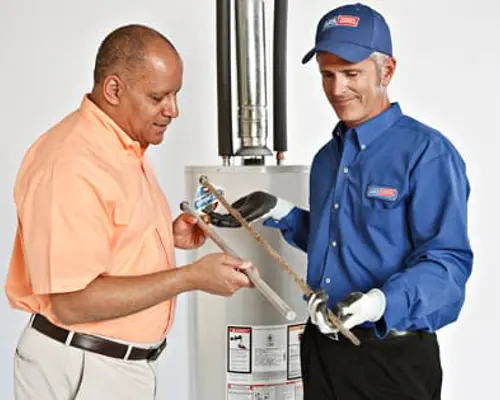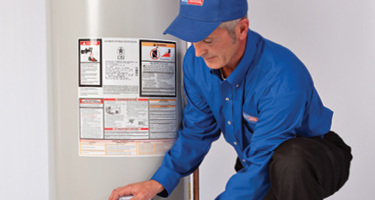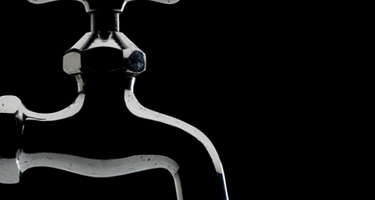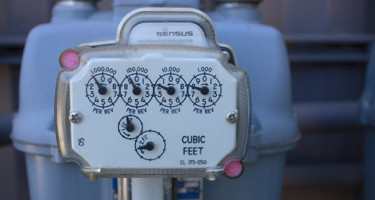
We've all been there. It's a cold winter morning and you head down to the water heater to get your water going for your morning coffee only to find water all over the floor. Your water heater is leaking!
The average household's leaks can account for nearly 10,000 gallons of water wasted every year. In addition, 10 percent of homes have leaks that waste 90 gallons or more per day. Water heaters are meant to provide water for many uses but they can also have issues that require immediate attention if not addressed in time. Although water heaters are usually durable, they are still prone to water leaks which can cause significant damage to the surrounding area.
Are you ready to put a stop to your hot water heater leaking water and wasting money? In this article we'll answer some of the most common questions asked regarding a leaking water heater, including:
- Why is my water heater leaking?
- What causes a hot water heater to leak?
- Is a leaking water heater dangerous?
- What should I do if my water heater is leaking?
- How can I prevent future water heater leaks?
Now, let's get started!
What Are The Common Causes of Water Heater Leaks?
In general, it's a good idea to call an emergency plumbing company if you have any questions about the cause of your water heater leak. The most frequent reasons why water heaters leak are:
Old tank
Water heaters with a tank style that are more than 15 years old leak more frequently than heaters with digital controls. As the system ages, components wear down, the water loses heat over time, and leaks occur more frequently. Water heaters may leak as a result of age. Rust forms in the tank, resulting in corrosion and permitting water to escape via fractures. When a water heater inevitably reaches the end of its usefulness, the only option is to replace your water heater.
Drain valve
The drain valve is used to empty the tank during maintenance visits and replacements by plumbers and homeowners. The drain valve is also utilized by homeowners when cleaning the tank is required. Over time, the valve becomes loose, allowing water to flow through. Leaks from the bottom of the valve, on the other hand, suggest that the component isn't waterproof. This situation calls for the installation of a new drain valve. Homeowners may replace this themselves, but it's better to get advice from a professional plumber before you do so.
Too much pressure
Water heaters are affected by naturally occurring water pressure, just like any other plumbing component. The hot water that generates steam and fills the vacant space causes pressure in water heaters. When the steam has nowhere to go, the pressure becomes too high. Any crack in the heater allows water to escape, relieving some of the pressure. When the water temperature is set too high or when water enters the system at large pressures, the heater's pressure rises.
Faulty temperature and pressure relief valve
Leaks in water heaters are also caused by the temperature and pressure relief valve, commonly known as the T&P valve. This valve aids in the reduction of pressure within the tank. When this valve is faulty, the tank's pressure rises. In some cases, the valve just needs to be tightened. However, if the device is defective, it will need to be replaced. Before you tackle T&P valve concerns, make sure the tank is depressurized.
Inlet and outlet connections
A water heater's inlet connection and outlet connection allow hot water to enter your water fixtures. These connections loosen over time, allowing hot water to enter your faucet. It's unusual for there to be any other problem with the inlet and outlet connections.
Internal tank
To complete its operations, a tank water heater has two shells. The external shell insulates the internal shell, which contains the water. A final layer of metal covers both shells. Age and deterioration are responsible for most tank leaks from the inside of the shell. This sort of leak isn't visible from the outside of the tank.
Sediment collection
Water heaters collect sediment at the bottom of the tank as they age. People who clean out the water from their water heater seldom encounter this problem. Sediment accrues until fractures form, allowing water to seep through. If you have a leaking water heater, it's time to replace it. Water heaters are expensive, so keep them clean.
Cracked storage tank
Some water heaters include an additional tank to extend the quantity of water they can store. Glass is sometimes used to line the tanks. Minerals accumulate and calcify on the glass over time, forming mineral deposits. This can happen if the water is too hot, or when it cools down. When the water gets hotter, it grows in size and puts strain on the glass, resulting in tiny fractures. In both situations, replacements are required.
Anode rod
As a sacrificial component of the water heater, an anode rod attracts corrosion products and keeps the water heater safe. When the anode rod's quantity depletes due to excessive corrosion, however, water heater leaks occur when it is no longer able to attract corrosive materials. There's a leak between the anode rod and the space where it previously was. Any leaks are readily addressed by replacing the anode rod quickly.
Is a Leaking Water Heater Dangerous?
If a water heater is leaking, there's a good chance water is dripping in the area of the leak and creating a potentially hazardous situation. Homeowners should be aware of water leaks inside or around their water heaters so they can take action to fix the problem before water damage from their water heater occurs.
A water heater is leaking if there are signs of water outside the water tank often pools or puddles around the water heater. Even if no water has spilled out, it's possible the water heater is still leaking if soggy drywall or spots on ceilings are visible.
If water isn't visibly leaking, water heaters can still be at risk for water damage. A water heater may have an internal leak if water is dripping or leaking from the water tank's pressure relief valve a device used to protect the water heater from being damaged by excess water pressure.
A leaking water heater can cause serious water damage, even flood a basement, if it goes unfixed for an extended period of time. Even water leaking from the water heater surface isn't safe water can pool and create an environmental hazard for wildlife living nearby, as well as attract mold growth.
Problems with a water heater usually become more severe when water damages other parts of the home or building. Water leaking from the water heater can damage home exteriors, walls and surfaces.
The First Thing To Do With a Leaking Water Heater Is...
The first thing you need to do is turn off the water supply to your water heater.
There should be two pipes on top of your water heater. One will be hot to the touch and the other will be cold. Some producers mark them with red and blue collars or paint, as well as indicating which is which.
The water supply line is the cold one. When hot water is used, it allows cold water to enter your water heater. Look for a shutoff valve along the route; most water heaters include one on the water supply line.
Although the majority of water heaters feature a shutoff valve on their water supply line, some do not. In this situation, you'll need to use your home's main shut-off valve to turn off the water. This will stop all incoming water from reaching your house, including the water supply to your water heater.
Shut Off Power to Your Water Heater
It's now time to turn off the power to your water heater once you've switched off the water. There are different steps to do this depending if your home has a gas water heater or electric water heater.
Steps for Turning Off Gas Water Heaters
-
Locate the gas supply valve. The line is generally within a few feet of your water heater. It's near the bottom and connects to the gas control valve, which is located at the bottom.
-
Turn the gas supply valve counterclockwise until it stops. The water heater will be disconnected from the gas supply.
Steps for Turning Off Electric Water Heaters
-
Locate the water heater's breaker in your home's electrical panel. It will be on a separate circuit breaker.
-
Flip the breaker switch to OFF.
Finding The Water Heater Leak Source
To fix water heater leaks, you'll need to find the source of the water leak to determine whether it requires a simple plumbing repair or something more complex like water heater replacement or installation.
To find the source of a leaking water heater, follow these steps:
Is Your Water Heater Leaking From The Top?
The cold water intake and hot water exhaust are the pipes connected to your tank top. Over time, these lines may become loose or disconnected as they are continually in and out of use. If your water heater is leaking here, all you have to do is tighten any loose connections. Make sure there are no leaks on both the intake and outlet sides.
The T&P Valve is a temperature and pressure relief valve (temperature protection valve) that comes standard on most water heaters. It's a mechanism for allowing steam or water to flow out of the tank to prevent excessive temperature or pressure from building up. Because it's a valve, it's also vulnerable to leaks. This might occur if the knob gets stuck in a halfway open position. It may allow water to escape from the pipe it connects to if it becomes faulty.
Is Your Water Heater Leaking From The Bottom?
The drain valve is located near the bottom of your water heater tank. This is the portion of the device that allows you to empty your water heater for maintenance. You should flush and clean your tank at least once a year to eliminate any debris build-up.
The drain valve, like all other connections, can wear down with time. If you've noticed a leaking drain valve, tighten it carefully using a pipe wrench. Avoid overtightening the valve to prevent the leak from getting worse, which might happen if you hurry.
Insulated water heaters are made of insulative materials and include an internal tank. An outer covering then wraps around this whole section. If the inner part begins to leak, one of the most common symptoms is a leak that emerges from the bottom of the tank. If your water heater is the source of your problems, you'll need to replace it. Unfortunately, these leaks are usually irreversible because they indicate deterioration.
Preventing Future Water Heater Leaks
There are preventative measures you can take even if you cannot readily spot where the water heater is leaking water. Water heaters usually last 8-12 years, depending on factors like water quality and water usage, however there are some things you can do to make sure your water heater lasts as long as possible.
Go look at it!
Chances are you won't notice a leaky water heater unless you go down into your basement, walk into your garage or utility closet and actually inspect your water heater. A simple eye test of all of the connections and under the tank itself will give away any sign there is an issue worth addressing. You don't know what you don't see with your own eyes.
Regular maintenance
By scheduling regular maintenance, a plumber ensures that the water heater does not leak. Maintenance checks ensure that plumbers check all of the plumbing components, which means they include the water heater. They verify for any active leaks and carefully examine each component to see if they have the capacity to develop future leaks.
Insulate pipes
The water heater's water supply and water drain lines should be insulated, such as with pipe insulation or electrical tape. You can simply buy these at your local home improvement store and follow the instructions on the box to install them. This will help insulate heat and save energy while also preventing water heater leaks in the future.
Drain and clean tank
The build-up of debris inside a water heater tank makes it less prone to crack. Sediment accumulation is less likely to cause the reservoir to fracture. Cleaning the tank may be accomplished by homeowners themselves. After draining the water, use bleach and water solution to clean any mold and mildew growth from the tank. This not only increases the water quality, but it also prevents sediment from harming the tank.
Replace anode rod
An anode rod sacrifices itself to safeguard the tank of a water heater. It attracts particles in the water that might corrode and degrade the metal components of the tank. The sacrificial magnesium anode rod is difficult to install and does not survive long (typically 2 or 3 years). These types of rods are known as sacrificial because the rods give up their lives in order to safeguard the tank. An anode rod's life expectancy is shorter than that of the entire tank since it has a particular goal.
Additional Water Heater Questions & Answers
Why does my hot water heater overflow and discharge water?
An overflowing water heater may be caused by excessive pressure, a malfunction in the T&P valve, or a buildup of sediment. You should check your valve, lower the temperature setting, or flush the tank to resolve the issue.
How can I ensure proper water heater venting?
Check your water heater for odors, soot, or excess condensation. You also should confirm your vent pipe is not obstructed, that it is securely connected, and that it slopes upward outside your house. Having carbon monoxide detectors installed should provide you with added assurance.
What happens if I neglect water heater draining?
Failing to drain your water heater periodically can hurt its efficiency and harm the components. This leads to higher energy costs and a shorter lifespan. Having a professional technician drain your water heater removes sediment, improves performance, and extends the life of your equipment. This flushing should be performed on an annual basis.
How can I distinguish between water heater leaks and condensation?
Although it can resemble a leak, condensation is harmless. To tell the difference, wipe away the water and look closely to see if water returns underneath your unit. If so, it’s likely condensation.
Why turn off power when dealing with water heater issues?
Disconnecting your water heater from power while servicing it is essential for safety. If you have a gas unit, shut off the supply valve. For electric units, turn off the dedicated breaker. Consult a professional if you’re not sure what to do.
How do I locate and use the water shut-off valves for water damage prevention?
You will have to find the main water supply valve, which is typically in your basement or near the curb. Most water heaters have hot and cold supply valves, usually colored red and blue. Shut off the cold water to prevent leaks and further damage.
Where does a hot water heater leak from, and why pinpoint the sources?
Some of the most common areas for leaks to occur include the drain valve, the T&P valve, connections, the tank, sediment in the bottom of the tank, and the anode rod. Finding the source of a leak is critical for making the necessary repairs to save time and money.
Let ARS/Rescue Rooter Solve Your Water Heater Leak
If you see a leak from your hot water tank and don’t know how to fix a leaking water heater, call the expert plumbers at ARS/Rescue Rooter. Our plumbing experts will examine your tank for leaks, perform preventative maintenance, and help you determine if a new water heater installation is required.
Give us a call at 866-399-2885 or find your nearest ARS/Rescue Rooter location to book an appointment with a licensed plumber to repair your leaking water heater today!






